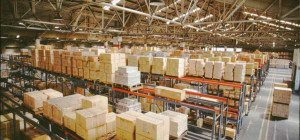 As your business grows, it starts taking up more space. Inventory, records, even old vendor statements and job applicant resumes — all of these items grow and grow until you have more boxes than can fit into a single office.
As your business grows, it starts taking up more space. Inventory, records, even old vendor statements and job applicant resumes — all of these items grow and grow until you have more boxes than can fit into a single office.
When your business reaches the point where you have more items than space, you have a few options. You can move, you can cull, or you can outsource your space problem. Each of these options has its own advantages and disadvantages, so consider them carefully before deciding which one is right for your growing business.
Moving
If your business is rapidly approaching “the next level,” it may be time to consider a move. Many people start businesses in their basements, or in small storefronts or office spaces, only to move to a larger space once the business starts taking off.
Before you make your move, however, you have to consider the cost factor. In a larger space, you have enough room to expand your inventory as well as bring on new hires; however, you have to be confident that you can earn the necessary revenue to cover all of these additional costs. Real estate, after all, is not cheap — in fact, many business are choosing to go in the opposite direction and downsize rather than move into larger spaces.
Moving is a great way to announce that your business has taken a new step forward, but take that step with caution. Leaping without looking can lead to high costs and low profits that, in turn, undo all the benefits of your new location.
Culling
Do you really need paper copies of all of your business documentation and records? Why not save space and store it via computer instead? Many businesses, especially those that have been in business for years, have boxes and boxes of old paperwork taking up valuable floor space. Some of this paperwork is required for tax purposes; other types of paperwork, however, are stored out of habit, and can easily be scanned and then shredded.
What’s the big problem with the culling solution? Time, of course. To execute a successful cull, you need to spend several hours going through old files and deciding what to keep, what to scan, what to shred, and what to throw away without scanning. This is the type of work that has to be done by the business owner him/herself, not an intern or low-level admin. If you’re like most busy small business owners, culling your files may take more time than you can afford.
Outsourcing
What do you do with the items that don’t fit in your office? Send them to someone else’s office, of course. Specifically, a warehouse designed to hold inventory, records, paperwork, and other items until you need them. Warehousing companies work with businesses to both store and manage inventory, and many warehouses handle inventory distribution directly, saving you the trouble of shipping and mailing. Likewise, warehouses are great places to store those sensitive business records that just don’t fit in your office space.
What’s the downside to outsourcing? Cost, mostly. It costs much less to send your items to a warehouse than it does to buy a bigger office space, but warehousing items still isn’t free. If your business needs space desperately, but can’t afford to send extra inventory or other items to a warehouse, you may need to recalculate your revenue strategy to try and close that gap.
Running out of office space is a natural part of growing a small business. When it happens to you, don’t worry; simply evaluate your options and choose the one that is most likely to help your business continue to grow.




![Awesome Things You Need in Your Office [According to Officeprinciples.com]](https://lerablog.org/wp-content/plugins/wp-thumbie/timthumb.php?src=http://lerablog.org/wp-content/uploads/2014/10/image1-300x199.jpeg&w=300&h=140&zc=1)


